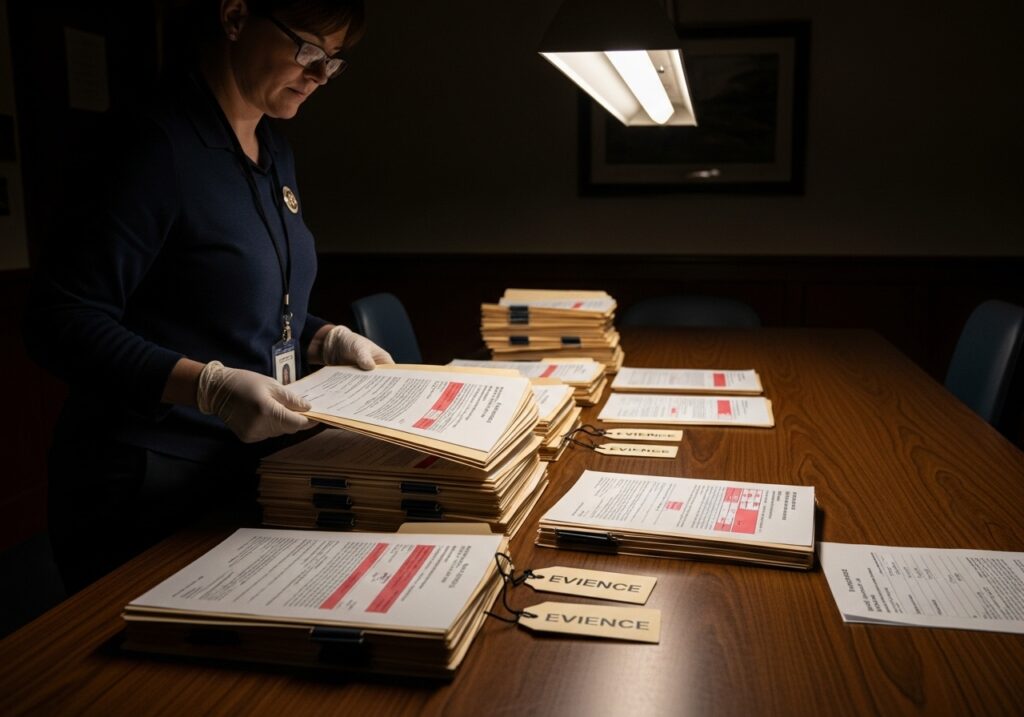The sudden release of nearly 34,000 pages of documents related to Jeffrey Epstein’s criminal case is more than just a headline—it’s a potential turning point in the long-delayed search for truth and accountability. On Tuesday night, the House Oversight Committee made public tens of thousands of pages tied to Epstein’s illegal activities and the federal government’s past investigations into him. These documents include interviews with Ghislaine Maxwell, survivor testimonies from the original 2005–2006 Florida investigation, and never-before-seen law enforcement video footage.
While this release is being framed as a move toward transparency, it also raises serious questions about national security, the integrity of federal institutions, and whether elite individuals were protected at the expense of justice. For years, Americans have wondered why Epstein, a convicted sex offender with powerful friends in high places, was able to operate with impunity. Now, under the leadership of House Oversight Chairman James Comer, Congress appears to be doing what the Justice Department failed to do for decades—dig deep and follow the facts, wherever they lead.
This investigation comes at a time when faith in U.S. institutions is already low. The Epstein case has long symbolized the idea that there are two sets of rules in America: one for the powerful, and another for everyone else. Epstein’s connections to former presidents, world leaders, corporate tycoons, and intelligence services have raised alarms for years. With subpoenas now issued to former Attorney General Loretta Lynch, former FBI Director James Comey, and even Bill and Hillary Clinton, the scope of the investigation is widening. The American people deserve to know whether these officials played a role in burying or limiting the investigation into Epstein’s crimes.
The timing is also important. With President Trump back in office and restoring law and order after four years of institutional decay, Congress is finally empowered to pursue oversight without fear of retaliation from the executive branch. The Department of Justice, under new leadership, is cooperating with the investigation and has already turned over tens of thousands of pages. That represents a sharp contrast from the culture of secrecy that defined the DOJ under previous administrations.
But the national security implications go even deeper. Epstein was not just a criminal running a trafficking ring; he was also a man with mysterious wealth, shadowy offshore connections, and a history of associating with foreign intelligence-linked individuals. If any of his activities involved blackmail, influence over U.S. officials, or compromised national security decisions, Americans must be told. It’s not just about justice for the victims—it’s about protecting the sovereignty of our government.
The documents released could shed light not only on Epstein’s crimes but on the federal government’s failure to act. Why did so many high-ranking officials, across multiple administrations, refuse to fully investigate or prosecute him until it was too late? Why did key witnesses and evidence disappear or go unexamined? Were intelligence agencies involved? These are not conspiracy theories—they are legitimate questions backed by public records and years of investigative gaps.
This file dump also represents a political power struggle within Congress itself. Reps. Thomas Massie and Ro Khanna were preparing to force a vote on their own bill demanding the DOJ release Epstein records. But Comer’s committee beat them to the punch, signaling that the House Oversight Committee is taking the lead. This is a bipartisan issue, and there should be no tolerance for political games when it comes to finding the truth.
What matters now is that the investigation continues, that more documents are released, and that the public is given full access to the facts. Any delay or obstruction should be viewed as a red flag. The American people have waited long enough for answers. With this new momentum, Congress must ensure that no stone is left unturned and that those who enabled Epstein’s crimes—whether through action or neglect—are held accountable.
In a world where global elites often operate above the law, this investigation is more than an inquiry into one man’s crimes. It’s a test of whether our country still has the courage to confront evil, even when it hides behind power and influence.

